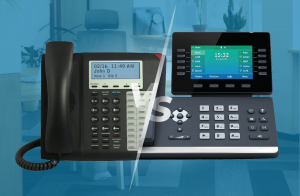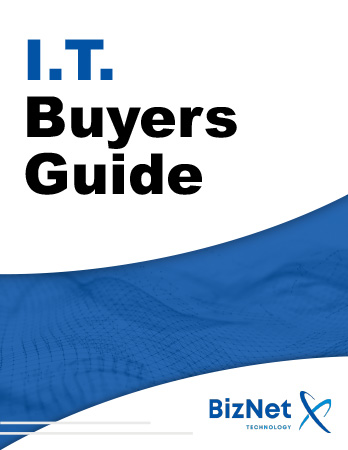One key aspect of communication infrastructure that often gets overlooked is phone systems. The debate between cloud phone systems (VoIP) and traditional landlines is ongoing, but when it comes to security, which one should your office rely on?
Let’s break it down in a way that’s easy to understand, so you can make the best decision for your practice.
Cloud Phone Systems: Security in the Cloud
Cloud-based phone systems, or VoIP (Voice over Internet Protocol), offer a range of advanced features and flexibility, but they also come with certain security considerations.
The Perks of Cloud Phone Systems:
- Encryption: One of the biggest advantages of cloud phone systems is encryption. All your voice data can be protected, making it difficult for unauthorized parties to access your calls or sensitive patient or client information.
- Remote Access with Caution: Health professionals and law offices often have team members working remotely. With a cloud phone system, staff can securely connect from anywhere with proper security measures in place, such as firewalls and VPNs. However, this access also makes VoIP systems potentially vulnerable to online threats like hacking or eavesdropping, if not set up properly.
- Regular Updates: Cloud systems are constantly evolving to stay ahead of cyber threats. Security updates and patches can be rolled out quickly, ensuring your phone system is always protected.
Best Practices to Boost VoIP Security:
To make the most of your cloud phone system, you’ll need to layer in some extra protection:
- Enable multi-factor authentication (MFA) to prevent unauthorized access.
- Use a VPN for remote workers to secure their connection.
- Ensure your provider offers end-to-end encryption for all calls.
With the right security setup, a cloud phone system can provide your health or law office with not just security, but the flexibility and convenience of modern communication.
Landlines: The Classic, Reliable Choice
Landlines might seem like a thing of the past, but they still have their place in many offices, especially for their simplicity and stability.
The Advantages of Landlines:
- Physical Security: Because landlines don’t rely on the internet, they are less susceptible to online threats like hacking or phishing. In most cases, intercepting a landline call requires physical access to the phone lines themselves, making it a more difficult target for cybercriminals.
- Consistency: Landlines don’t depend on internet connections, so they can continue working even when there’s an internet outage. This reliability is particularly important for offices where any disruption in communication could cause delays in patient care or legal matters.
The Downsides:
The main downside is that landlines lack encryption, meaning your calls aren’t as secure as they could be. Anyone with physical access to the line could potentially listen in, which isn’t ideal for industries that deal with sensitive health or legal information.
Weather the Storm: Hurricanes and Phone Systems
In places prone to hurricanes, like South Florida, reliable communication is vital for health and law offices. During storms, landlines and internet-based systems react differently, which may affect your choice.
- Landlines often continue to work when the power goes out because they are powered by the phone company, which has backup generators. This could be crucial during a hurricane or other natural disaster.
- Cloud Phone Systems, on the other hand, depend on an internet connection. If your office loses power or your internet provider experiences an outage, your phone system could go down unless you have a backup plan in place, like mobile hotspots or battery backup solutions for routers.
The solution? For hurricane preparedness, consider a hybrid approach—using both landlines and cloud phones. You’ll have the best of both worlds: the advanced features of VoIP and the reliability of landlines during outages.
Which is Better for Your Office?

The best choice depends on your office’s specific needs. Cloud phone systems offer more flexibility and security when configured correctly, making them ideal for health and law offices with remote staff or multi-location setups. On the other hand, landlines provide a solid, low-tech solution for those who prioritize physical security and reliability over advanced features.
If you’re concerned about HIPAA compliance or protecting client confidentiality, a well-secured cloud phone system is likely the better route. With end-to-end encryption, robust security protocols, and the ability to scale, VoIP can offer the modern communication features you need, without compromising on safety.
Final Thoughts
For health and law offices juggling sensitive information, security should be front and center when choosing a phone system. Cloud phone systems can offer greater security through encryption and remote access, but they need to be properly safeguarded. Meanwhile, landlines remain a reliable, albeit outdated, option that could still play a role in your office.
In the end, whichever system you choose, make sure to consult with an IT professional who understands your industry’s specific security needs to ensure your communications remain secure, reliable, and compliant.
Ready to Upgrade Your Phone System?
Whether you're looking for the flexibility of cloud communication or the reliability of traditional landlines, we can help you find the perfect solution tailored to your health or law office's needs. Contact us today for a free consultation and discover how to enhance your communication security while staying compliant and connected—rain or shine!




